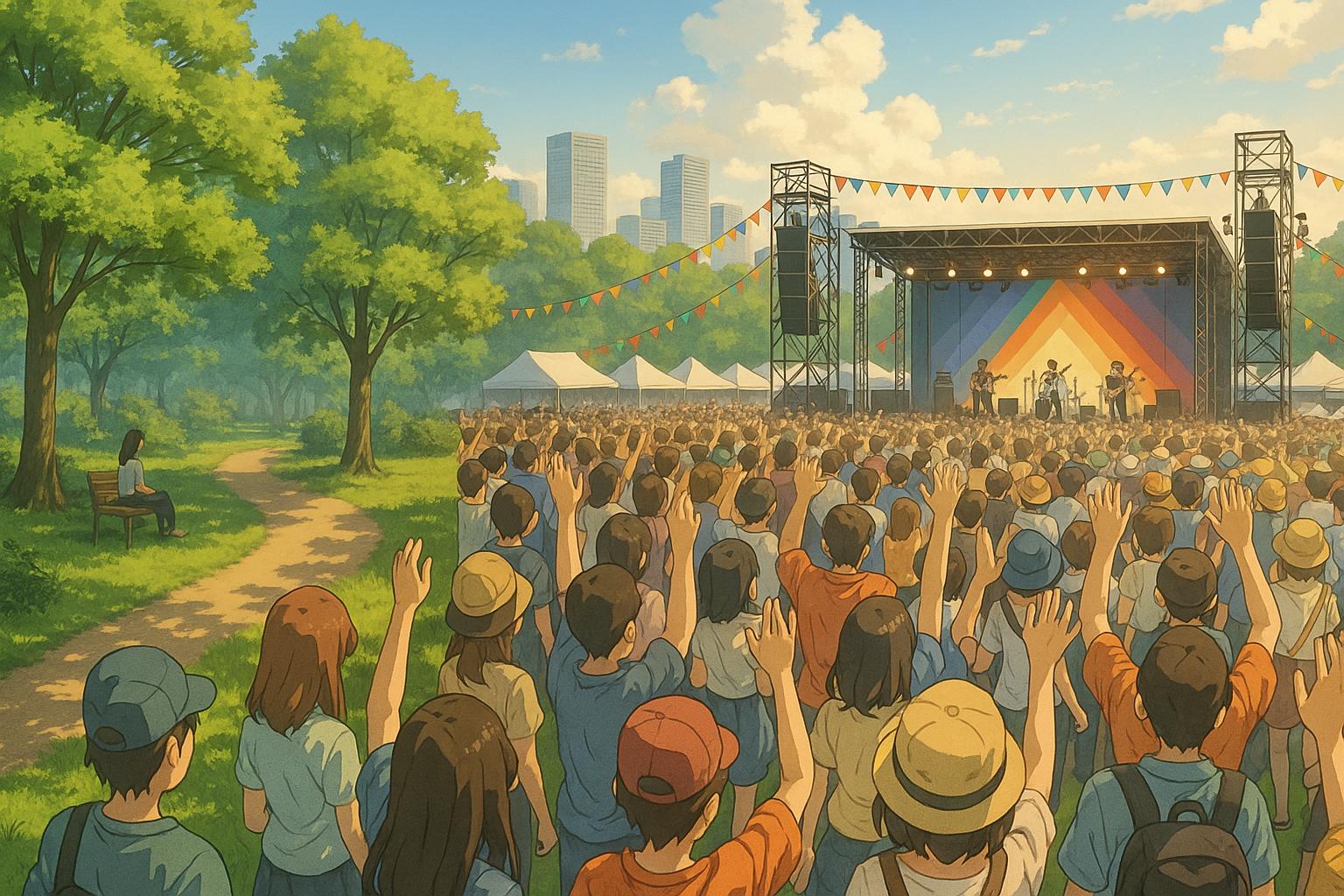In the heart of London, Brockwell Park has once again become the focal point of a contentious debate over the balance between community enjoyment and the preservation of urban green spaces. Despite a recent High Court ruling which upheld a legal challenge from the campaign group Protect Brockwell Park, the local council has moved forward with its plans to host a series of music festivals. These events, organised by Summer Events Limited, have drawn significant criticism from local residents and environmental advocates.
The High Court found that Lambeth Council had exceeded the legal framework for temporary changes of land use by allowing events at Brockwell Park to extend well beyond the designated 28 days. Such a ruling underscores a growing tension surrounding the use of public spaces for commercial gain, yet Lambeth Council remains resolute. Following the ruling, they approved a certificate of lawfulness for ongoing festival activities, indicating a strong commitment to the financial prospects these events promise. Notably, the festivals are expected to bring an estimated 285,000 attendees over the summer, suggesting substantial economic benefits for the local area.
Cllr Donatus Anyanwu, Lambeth’s Cabinet Member for Stronger Communities, defended the council's decision, arguing that the income generated from events is crucial for maintaining and improving public spaces. “Striking the balance between putting on a world-class, inclusive cultural programme and protecting our parks is challenging,” he explained. However, local activists contend that the events compromise the very essence of the park, resulting in public areas being “fenced off” from residents who rely on them for natural respite amid urban life.
The concerns stretch beyond mere access; they encompass environmental impacts and community welfare. Critics point to significant tree removals for festival preparations and the damage inflicted on park turf, which remains evident long after the crowds have departed. Furthermore, reports of increased crime, particularly drug offenses during festival times, have added fuel to the ongoing protests. Notable figures, including prominent actors like Sir Mark Rylance, have spoken out against what they perceive as an environmental crisis exacerbated by commercial interests.
Local residents have taken their dissent a step further. Recent protests have highlighted their grievances against not just the noise and crowding associated with the festivals, but also the lack of adequate communication from the council regarding event planning. As Jen Hawkins from Protect Brockwell Park articulated in a recent interview, “We’re not against festivals but seek transparency and genuine community benefits.” The sentiment reflects a broader narrative among locals who wish to safeguard their connection to the park—a connection that many contend is vital for their mental and physical well-being.
With public sentiment increasingly divided, the debates surrounding Brockwell Park's festivals exemplify broader questions about the future of public spaces in urban landscapes. As Lambeth Council pushes ahead with its festival plans, the dichotomy between economic opportunity and ecological preservation looms large. Advocates argue that advancing a broader cultural agenda must not come at the expense of local ecosystems or community interests.
While the dual objectives of economic uplift through cultural events and community conservation are complex, the dialogues happening in Brockwell Park may influence similar discussions across London and beyond. As the festivals commence, it remains to be seen how local authorities will reconcile the competing interests at play, and whether the outcome will reshape the cultural landscape in a way that fosters both economic and communal prosperity.
Reference Map:
- Paragraph 1 – [1], [2], [4]
- Paragraph 2 – [1], [3], [5]
- Paragraph 3 – [2], [4], [6]
- Paragraph 4 – [3], [7]
- Paragraph 5 – [1], [2]
- Paragraph 6 – [2], [5], [7]
Source: Noah Wire Services
